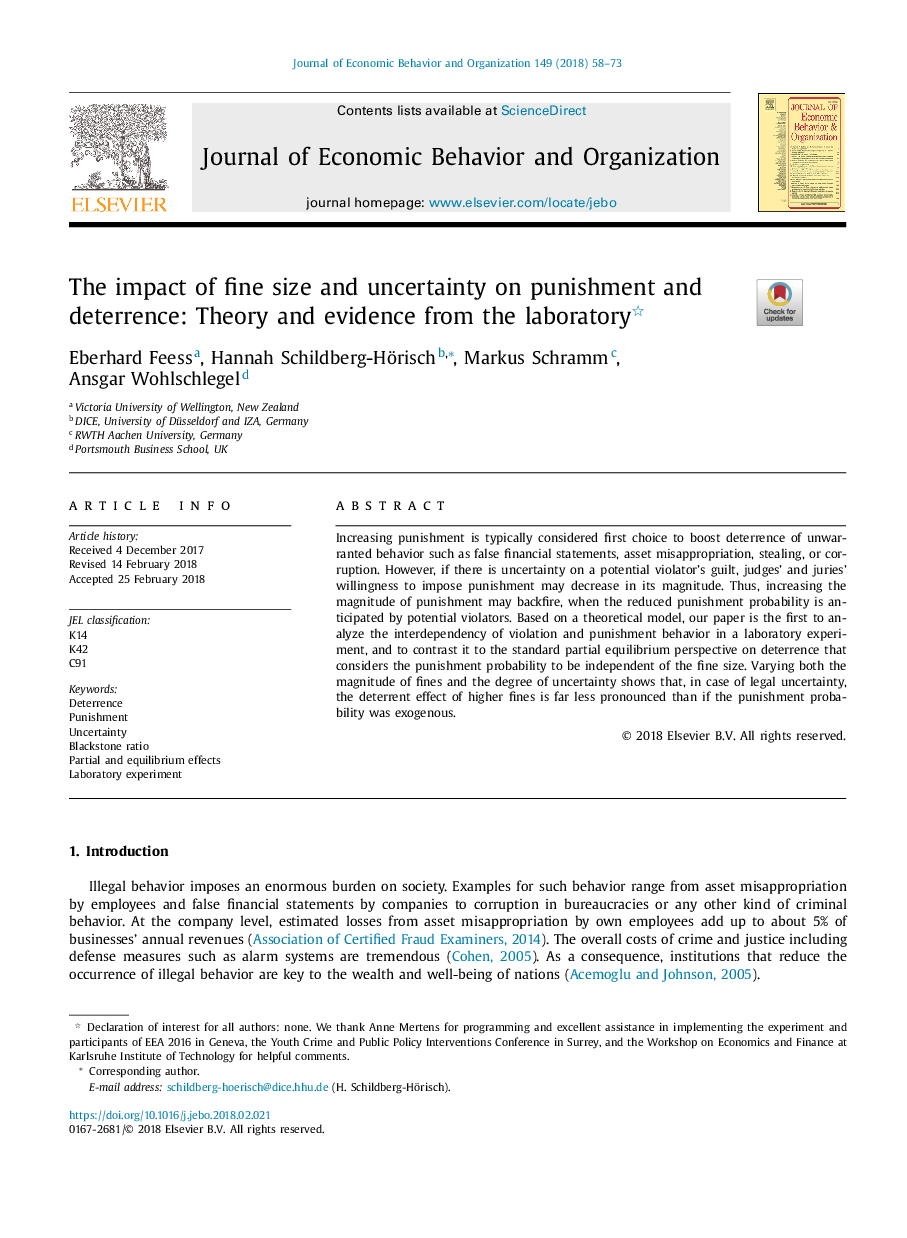| Article ID | Journal | Published Year | Pages | File Type |
|---|---|---|---|---|
| 7242562 | Journal of Economic Behavior & Organization | 2018 | 16 Pages |
Abstract
Increasing punishment is typically considered first choice to boost deterrence of unwarranted behavior such as false financial statements, asset misappropriation, stealing, or corruption. However, if there is uncertainty on a potential violator's guilt, judges' and juries' willingness to impose punishment may decrease in its magnitude. Thus, increasing the magnitude of punishment may backfire, when the reduced punishment probability is anticipated by potential violators. Based on a theoretical model, our paper is the first to analyze the interdependency of violation and punishment behavior in a laboratory experiment, and to contrast it to the standard partial equilibrium perspective on deterrence that considers the punishment probability to be independent of the fine size. Varying both the magnitude of fines and the degree of uncertainty shows that, in case of legal uncertainty, the deterrent effect of higher fines is far less pronounced than if the punishment probability was exogenous.
Related Topics
Social Sciences and Humanities
Economics, Econometrics and Finance
Economics and Econometrics
Authors
Eberhard Feess, Hannah Schildberg-Hörisch, Markus Schramm, Ansgar Wohlschlegel,
